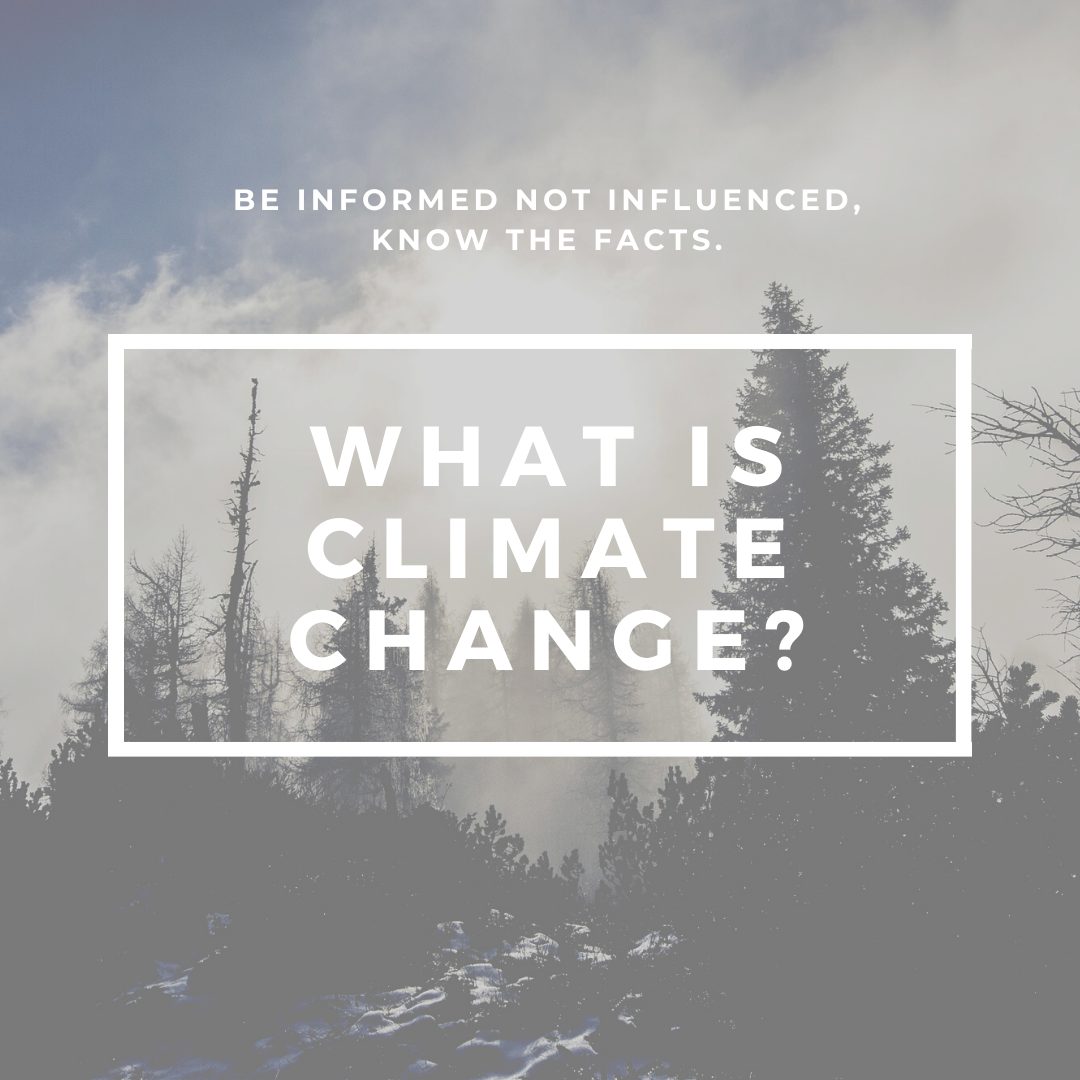 Before we can answer what climate change and global warming are we need to address a few things.
Before we can answer what climate change and global warming are we need to address a few things.
First now more than ever, misinformation is running rampant in our society. However, change is coming!
With the much needed direct support and acknowledgment from our current president and other world leaders, climate literacy will become a reality. We want to do our part and help clear up any misunderstanding of global warming and climate change.
Definitions:
Before we begin, we all need to have the same definitions.
Climate is defined as the weather conditions prevailing in an area in general or over a long period, while weather refers to the atmospheric condition that occurs locally over short periods, minutes, hours, or days. Some examples of these conditions could be rain, snow, or hail.
The terms climate change and global warming are seen as pretty interchangeable. However, there are some clear distinctions between them. Climate change is the long-term change in average weather patterns that have been defined by the Earth’s regional and global climates.
At the same time, global warming is the long term heating of the Earth’s climate system since the pre-industrial period caused by human activities.
Some of these activities are fossil fuel extraction and combustion; another is the increase in greenhouse gas levels that cause heat to be trapped in the atmosphere. Climate change encompasses both naturally produced warming caused by the Earth and human-produced warming.
Effects of Climate Change & Global Warming:
Global warming and climate change symptoms that scientists and experts can point to prove these phenomena exist. Since the industrial revolution, human activity has exploded and has led to the increase of the average global temperature by 1.8 degrees Fahrenheit (1-degrees Celsius) and growing .36 degrees Fahrenheit (0.2-degrees Celsius) every decade. This warming trend is increasing at a rate that would occur naturally over millennia rather than decades.
Theoretical models are used in conjunction with observations taken from the land, air, and space to calculate the Earth’s temperature throughout its history. The rise in the amount and the severity of extreme weather events like wildfires or hurricanes this past year are examples of observable effects of climate change.
These observable events and models have provided necessary climate data to determine at a high level of certainty that climate change is occurring and at a rate which our planet has never seen. The vast majority of scientists believe humans are directly responsible for this warming.
Solutions:
The road to tackling the current climate crisis is a daunting one; however, that doesn’t mean it can’t be done or that it’s impossible. Every day we have an opportunity to change our behavior and start living a little more waste-free and focused on preserving our planet for future generations.
You are not helpless. You and everyone else have the power to change and shape the world around you. Speak up and use your voice to advocate for sustainability and environmental justice.
Like-minded people are fighting to expand climate literacy and share in positive actions to save our planet for everyone.
If you are looking for actionable ways to make a difference for the planet, think about trying to accomplish one of the following goals:
- Bring your reusable container to restaurants to pack leftovers rather than using single-use plastic containers.
- If you have a home, consider switching to renewable forms of energy through solar panel installation or call your providers and ask about renewable options.
- Advocate for your local community, school, office, bank, and business to divest fossil fuels. Spread the word about living more planet-conscious.
- Switch to a more sustainable diet by growing some of your food or opting for organic or locally sourced seasonal produce. Consider reducing meat consumption or phasing it out altogether.
- Try and only purchase food you need by meal planning to save time at the store and reduce waste since a large percentage of food is wasted. Natural waste created should be composted if possible.
- Consider switching to an electric or hybrid car.
- Vote with your dollar, and don’t forget to vote.
Pledge to bring your own reusable container to pack leftovers and start making a difference today!

After looking at a number of the articles on your web site, I honestly appreciate your way of writing a blog. I bookmarked it to my bookmark site list and will be checking back in the near future. Take a look at my website as well and tell me your opinion. Elysia Andras Pol
Thank you for your feedback we really appreciate it! We’re working to bolster our blogs so stay tuned for more this month!
I really like the design and contents of your web page Zorine Errol Karolyn
Thanks for your feedback! 🙂
Great info ! Will definitely be putting this to use for my business. Thank youuu Emogene Sherm Magas
Thanks for your comment! Happy to help provide helpful info!
This is a topic that is near to my heart… Take care!
Exactly where are your contact details though?
Feel free to email me at [email protected] and let’s chat! 🙂